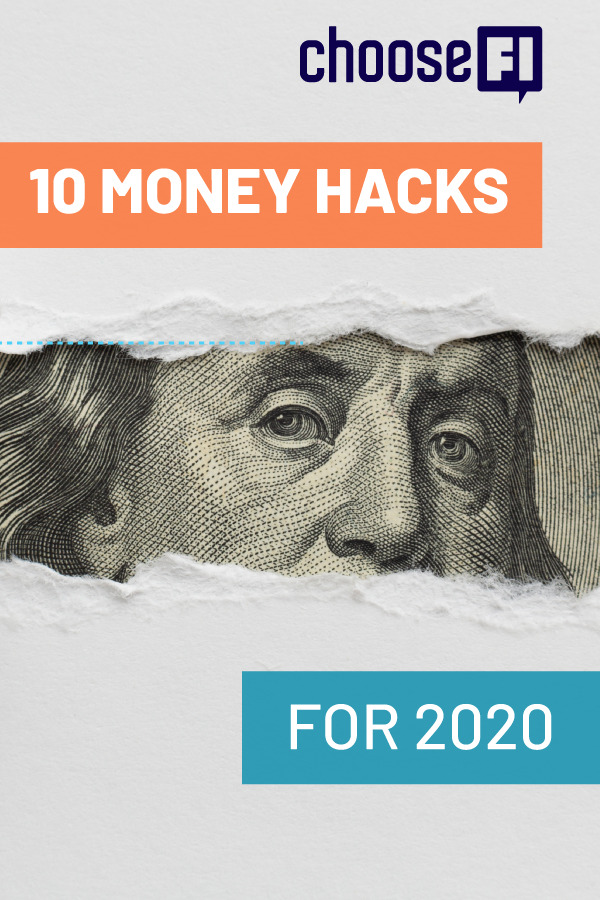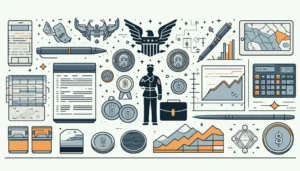The start of anything is an exciting place to be. Whether it’s a fresh new year, a new city, or starting any new chapter of your life, it can be refreshing to turn the page.
No matter how far along or fresh your journey to FI may feel, there are plenty of money hacks to help you supercharge your progress, grow your savings rate, and be happier with your optimizations along the way.
While any and all financial goals you set for yourself will be impactful, here are a few money hacks to help you get started off right so you can powerhouse your way through the year.
1. Get Started On The Southwest Companion Pass
The Southwest Companion Pass makes people giddy for a reason. When achieved, the Southwest Companion Pass allows you to bring along a designated family member or friend for (just about) free on any Southwest flight you book.
What’s extra special about the Southwest Companion Pass is that you can utilize it regardless of whether you booked your flight with cash or with points–your buddy gets to fly for free, and letting them fly with you doesn’t take any additional Rapid Rewards points.
There’s a reason you’ll want to start on the Companion Pass as soon as you can in the new calendar year. The SCP pass is valid for the rest of the calendar year that you’ve earned it, along with the entire next year. So, if you time it smartly, you are looking at up to 24 months of as-close-to-free travel as you can get for a buddy or loved one via Southwest.
So, how do you grab the brass ring of cool travel rewards perks? You’ll need to rack up at least 135,000 qualifying points to earn your Southwest Companion Pass.
Be aware that not all points count towards the Pass, so do your research to see what qualifies and do a bit of reading before you sign up for any credit cards or decide on any major purchases.
2. Make The Most Of Your HSA
The next money hack may not seem that sexy, but it is. An HSA, or Health Savings Account, is a tax-advantaged savings account available for folks who are enrolled in a high-deductible insurance plan.
Since deductibles are high, people will often pay higher upfront costs for doctor’s visits and procedures, among other medical necessities. The HSA is a tax incentive to take on a higher deductible.
Usually, when opting into yearly benefits packages through your employer, you can decide how much money you want to contribute to an HSA. Participants can contribute their pre-tax dollars to the account to later use tax-free when paying for qualified medical expenses.
Concerned about HSA fees? Consider opening an HSA with Lively. Lively is an HSA platform that’s free for individuals with high-deductible health plans. There are no monthly fees and no minimum balance requirements. Lively lets you make individual or automatically recurring deposits to your Lively HSA from your employer, your bank account, or both.
You can keep your Lively HSA funds in Lively’s FDIC-insured, interest-bearing savings account. Or, you can invest your Lively HSA funds by taking advantage of Lively’s partnership with TD Ameritrade.
Even if you think an HSA isn’t for you, reading up on the tax benefits of this type of account can be a great tool to have in your toolbelt for the next year. Just make sure you understand how it works and think through where else you’re contributing cash towards your goals and long-term healthcare costs.
Related: The Triple Tax Benefit Of The HSA
3. Plan Ahead For Next Year’s Taxes
I consider myself lucky if I’m organized enough to have my receipts in one place. Honestly, planning ahead for your taxes is one of the smartest money hacks you can cross off your list with a wee bit of planning.
This year, up your tax game:
- Read up on some FIRE articles that explain the tax law. A good one to start with is this article explaining tax deductions by Sean Mullaney.
- Consider moving towards utilizing digital records for a clutter-free organization.
- Plan your year (and years) ahead to figure out when you should be making large purchases or life changes to take advantage of any and all tax breaks.
Yes, it’s super easy to put off taxes until April, but now is a great time to flex the muscles of being both more organized and more empowered about your taxes so you can utilize every potential deduction or tax-savvy investment strategy. It’s also a good time to look into any government programs that can help you save money such as green energy reimbursements or incentive programs, local scholarships, and services your tax dollars are already paying for can be a great way to reap the benefits.
Related: The 4 Worst FI Tax Hacks (And What To Do Instead)
4. Max Out Your Available Retirement Accounts
If you haven’t already, this could be the year to get your savings rate to 50% and double down on maxing out your retirement accounts.
If you’re traditionally employed, going after your 401k in the fresh new year gives you plenty of time to space out your contributions while taking advantage of any matches your company provides. For 2020, you can contribute up to the lesser of $19,500 or your wage income to a 401k per year.
If you haven’t taken advantage of your Roth IRA or traditional IRA (and a SEP IRA or Solo 401(k) for the self-employed), now could be the smart start for automatic, small contributions. Setting up a direct deposit to trickle in contributions evenly throughout the year can help you hit your $6,000 limit without noticing the pinch in your checking account.
Whether you choose a traditional or Roth may depend on your current goals and how you’ve stacked up your assets in other areas to fit your long-term goals and align with your retirement horizon. Roths offer no upfront tax benefit in exchange for tax-free growth. While traditional IRAs may offer an upfront tax benefit your withdrawals in retirement are taxed as income.
For those who are self-employed, a SEP IRA offers some fine print, but also some sizable options to grow your retirement stockpile. At this time, you can contribute up to 25% of your income, for a total of around $57,000 for each year.
In a Solo 401(k) you can contribute 100% of your income up to $19,500, in 2020, as an employee of your business. Then you can contribute an additional 20% of your income as an employer contribution, up to $57,000 in total contributions for 2020.
If you have questions about IRA contributions this article from Sean Mullaney gives a comprehensive explanation.
No matter what you choose, set up those automatic contributions this month and get saving on schedule!
Related: Retirement Plans For The Self Employed: SEP IRA Vs Solo 401(k)
5. Shopping Ban
If you’re feeling a slight consumerist hangover like most of us right after Christmas, January is the perfect time to kick off a shopping ban.
Whether you decide to refrain from shopping for a month, a quarter, or even a full year–your wallet will thank you. Plus, you likely will have some enlightening insights when all is said and done.
Taking a hiatus from shopping can mean different things for different people. You may decide to refrain from everything except food and medicine, or, you may take a less stringent approach and stop shopping for yourself, but still, give gifts and charitable contributions.
Cait Flanders was on Episode 81 of the ChooseFI podcast and shared her year-long shopping ban. She shared her journey from a recovering shopaholic and how she framed up a shopping ban to include carry-out coffee and takeout. Over a year, she bumped up her savings rate, did a purge of all the junk in her life, and focused on her health.
January is a great time to kick off your own shopping ban, so if that appeals to you–there’s no better day to start than today!
Related: Freedom Is Not Found At The Store: A Shopping Ban Experiment
6. Start A Side Hustle
We’ve documented that starting a side hustle can be your secret weapon to FI because cutting costs is great, but having extra cash coming in every month can push your FI progress into hyperdrive!
While any time is a good time to start a side hustle, now can be a great time to start driving for Uber, starting a freelance writing business, or setting up a spare room to rent on Airbnb. Even if you’re not ready to take the plunge, you can spend this time exploring your options.
Related: Why A Side Hustle Is FI’s Secret Weapon
7. Compare Insurance Rates And Interest Rates
When was the last time you took a look at your insurance rates to ensure you were getting the best deal?
For insurance, you can quickly peruse and compare policies using sites like Policygenius. Policygenius is an independent online insurance marketplace to find competitive offerings on life insurance, disability, health insurance, and pet insurance.
Check out our full review of Policygenius here.
If you’re paying down your student loans, you might want to explore comparing your options for repayment. Credible is a student loan marketplace platform that helps you compare options to shop around competitive options for refinancing and as well as private student loans.
Check out our full review of Credible here.
If you’re dealing with a variety of credit card debts that are challenging to manage with varying due dates and interest rates, you might want to weigh the benefits of Dave Ramsey’s Snowball method versus debt consolidation. You can tackle your debts by the smallest balance first to build momentum (the snowball) or, you can build out a plan to consolidate your debts with a loan or balance transfers.
Related: Debt Snowball vs. Debt Avalanche: Does It Even Matter?
8. Check Your Investment Fees
Paying fees on your investments may not seem like a big deal, especially if your nest egg is really small, but compounded over time as your balance grows–even small fees at 1% add up to huge losses over time.
While investing may be overwhelming for some aspiring FI’ers, it truly doesn’t have to be. Moving your money to Vanguard for low-cost index funds means you take on slightly a bit more management (honestly not much at all), but you pay significantly less in fees.
Often, we defer our own responsibility to manage our money because we feel that money managers and firms are somehow smarter than us. But it’s been proven that many of the expensive managers aren’t any more effective than a house cat randomly picking investments for you. It may be intimidating to change up your retirement accounts but follow the fees.
You’ll hear most FI’ers advocate for low-cost index funds through Vanguard because they’re simple to set up and low in fees to boot.
Related: How To Move Money From A Financial Advisor To Vanguard
9. Join Your ChooseFI Local Group
We know the path to FI can be really lonely if you’re the frugal black sheep in your family and most of your pre-existing friendships hinge around expensive dinners out. While you can optimize every dollar you spend, start a side hustle, and house hack your way toward financial freedom–if you do it all by your lonesome, you’ll reach FI and have nobody to celebrate with.
The power of the community can not be understated. Finding fellow FI friends can also be a smarter way to crowdsource solutions, collaborate, and ask questions along the way. Besides, sometimes it’s hugely motivating and totally satisfying to have people you can ask nerdy questions with or find a local friend to swap books with.
While the ChooseFI Facebook group is a great place to hop into robust, ongoing discussions about FI and there are even some breakout groups for different lifestyles (like military FIRE or singles), finding your local group for in-person meetups can be a game changer. If you’ve been feeling a bit lost in your FI journey or even if you’re in a good place with your path and want to give back–syncing up with people face to face can be hugely fulfilling.
Related: How To Avoid Peer Pressure On The Path To FI
10. Aim To Get 1% Better
These aren’t the only ways you can hack your money and your life in the coming year–we’ve also listed out 50 ways to improve your finances by 1%.
There is huge power in the aggregation of marginal gains. While you might not be able to take on extreme frugality to become financially independent, don’t underestimate the impact you can have on your life by simply focusing on moving the needle by 1% in several areas of your life.
Making progress in your health, networking, education, and income can change your life for the better, in addition to adding to your FI progress.
So, what will you be doing differently this year? What gets you the most excited about a new calendar year and what do you try to optimize this time of year?
Related Articles
- FIRE Essentials: Low-Cost Index Fund Investing
- Zero Impact Savings: Save More Without Changing Your Life




